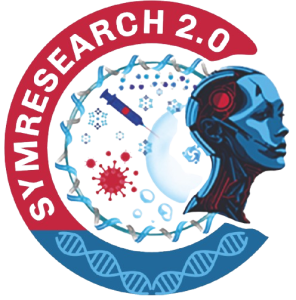Advances in genomics and data analytics are enabling treatments tailored to individual genetic profiles. Precision therapies are being developed for cancers and other conditions based on a patients unique genetic makeup. Tools like CRISPR are revolutionizing genetic engineering, enabling precise modifications of DNA to treat genetic disorders, cancers, and other diseases, opening doors for potentially curative treatments. Stem cell therapy and tissue engineering are pushing the boundaries of organ repair and regeneration. These approaches are paving the way for potential treatments to restore damaged tissues or even replace organs. AYUSH encompasses Ayurveda, Yoga & Naturopathy, Unani, Siddha, and Homoeopathy. These traditional systems of medicine offer holistic approaches for the prevention and management of non-communicable diseases (NCDs) such as diabetes, cardiovascular diseases, cancer and obesity and emphasize prevention and a patient-centered approach. Integrating these traditional practices with modern healthcare can enhance treatment outcomes and promote overall wellness.
The session on personalized medicine will involve discussion on topics such as:
- Pharmacogenomics
- Omics in diagnosis/prognosis
- Gene editing and CAR-T cell therapy
- Tissue engineering and regenerative medicine
- Stem cell and cell-free therapy
- Nanomedicine and Nanotechnology
- Theranostics
- Engineering immune system
- AYUSH
Learning Objectives:-
- Understand the role of genomics and data analytics in personalized medicine, including pharmacogenomics and omics technologies (genomics, proteomics, etc.) for disease diagnosis and prognosis.
- Explore advances in genetic engineering and immunotherapy, such as CRISPR-based gene editing, CAR-T cell therapy, and engineered immune system modifications for targeted disease treatment.
- Examine regenerative medicine approaches, including stem cell therapy, tissue engineering, and cell-free therapies, for organ repair and disease management.
- Discuss the applications of emerging technologies like nanomedicine, theranostics, and their role in enabling precision diagnostics and therapeutics.
- Evaluate the integration of traditional medicine (AYUSH) with modern healthcare, focusing on holistic and patient-centered approaches for managing non-communicable diseases (NCDs).
Learning Outcomes:-
By the end of this track, participants will be able to:-
- Describe the role of genomics, pharmacogenomics, and multi-omics technologies (e.g., genomics, proteomics) in enabling personalized medicine for disease diagnosis and prognosis.
- Compare different genetic engineering techniques (e.g., CRISPR) and immunotherapies (e.g., CAR-T cell therapy) and their applications in treating genetic disorders and cancers.
- Explain the principles of regenerative medicine, including stem cell therapy and tissue engineering, and their potential in repairing or replacing damaged tissues and organs.
- Discuss how nanomedicine, nanotechnology, and theranostics enhance precision diagnostics and targeted drug delivery in personalized treatment strategies.
- Evaluate the benefits and challenges of integrating traditional medicine (AYUSH) with modern healthcare for holistic management of non-communicable diseases (NCDs).

